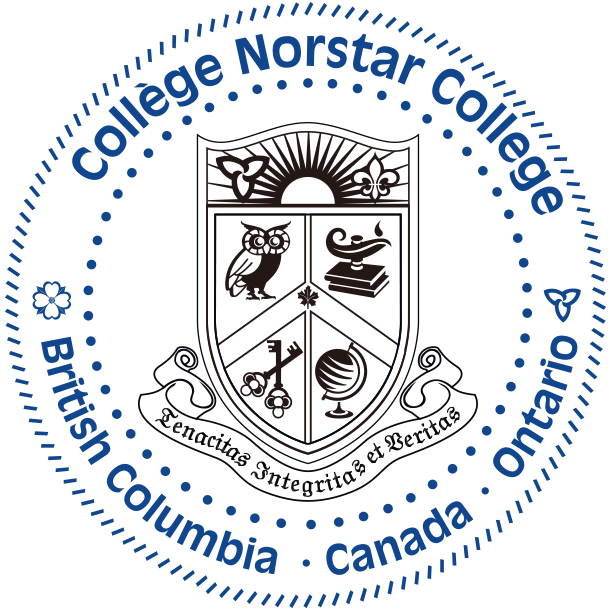The Ontario Secondary School Literacy Test (OSSLT) is a compulsory standardized test for high school students in Ontario who wish to obtain the Ontario Secondary School Diploma. It was established in 2001 by the Conservative government. It is administered by the Education Quality and Accountability Office (EQAO).
The OSSLT is written every year on the last Thursday of March in all catholic, public and eligible inspected private secondary schools in the province of Ontario. It is used to assess the reading and writing skills of Grade 10 students of Ontario secondary schools. International students may complete the test on the specified date prior to their completion of the OSSD Program.
The OSSLT consists of two booklets that must be completed by students in 2.5 hours. The first booklet includes multiple-choice and short answer questions, as well as questions asking the student to compose a newspaper article based on the headline and picture provided. The second booklet also includes multiple-choice and short answer questions, as well as a question asking the student to write an opinion piece on a given topic. The test is out of 400 marks.
For the reading component, students are asked to read a variety of selections and answer questions about each selection. The reading questions are designed to measure student achievement in these areas:
• understanding of ideas and information that are stated directly in the reading selection
• understanding of ideas and information that are stated indirectly and that require the reader to make inferences
• making of connections between personal knowledge and experience and the ideas and information in the reading selections (e.g., interpretation of meaning).
The reading selections reflect the types of reading materials students should encounter every day, including the following:
• informational materials such as explanations and instructions
• graphic materials, such as schedules, graphs, and tables
• literary materials, such as stories, descriptions, and dialogues.
The questions on the selections include short-answer questions, multiple-choice questions, and questions that require a brief explanation.
For the writing component, students are asked to produce four pieces of writing. The writing tasks are designed to measure student achievement in these areas:
• development of a main idea
• provision of supporting details
• organization and linking of ideas and information
• use of an appropriate tone for the purpose and the intended reader
• use of correct grammar, punctuation, and spelling.
The kinds of writing include the following:
• a summary
• a series of paragraphs expressing an opinion
• a news report
• an information paragraph
Marks may be deducted due to a lack of detail. However, the inclusion of too much information can also result in penalties.
Procedure
Alternatives
OSSLT Tests and Scoring Materials
EQAO’s Technical Report for the 2007–2008 Assessments
Getting Ready Guide
Procedure
Before the OSSLT is written, a teacher of Grade 11 or 12 University Preparation English will be scheduled to assist students in preparation for the test. The OSSLT Prep Course is free and open to all students at OIT who need to take the test in order to fulfill the the provincial literacy requirement for graduation from the OSSD program. Eligible students must contact the Dean’s Office at Tel.: 416-649-9000 or by email at dean@oitedu.ca to register for the course at least three months prior to the actual testing date.
Upon completion of the test, booklets are shipped to the spot designated by the Ontario Ministry of Education for marking. Those who fail must attempt the test the following year or take the Ontario Secondary School Literacy Course (OSSLC) in grade 12 to fulfill the provincial literacy requirement for graduation from the OSSD program.
top
Alternatives
Ontario Secondary School Literacy Course (OSSLC)
The Ontario Secondary School Literacy Course (OSSLC) is a Grade 12 course, offered as full credit and as a make-up, designed for students who must meet the literacy requirements for graduation. Students must have been eligible to write the Ontario Secondary School Literacy Test (OSSLT) at least twice and who have been unsuccessful at least once in order to take this course. The tuition fee for the OSSLC is extra and is equal to the same amount for a regular UP credit. Students who need to take the OSSLC credit course must contact theDean’s Office to get more information about the course or to register for the course at Tel.: 416-649-9000, or by email at dean@oitedu.ca.
top
OSSLT Tests and Scoring Materials
Click the links to access released materials containing actual items (questions and prompts) from past tests. These contain the same instructions as are in the test booklets. Also available are student responses and scoring guides.
Years: 2008–2009
top
EQAO’s Technical Report for the 2007–2008 Assessments
This report outlines the technical features and professional expertise that were used to ensure the accuracy, validity and psychometric integrity of the EQAO assessments administered in 2007–2008.
EQAO’s Executive Summary of the Technical Report for the 2007–2008 Assessments
top
Getting Ready Guide
This guide provides students with details about test content, instructions for doing the test and tips for doing well.
You can find out more by visiting www.eqao.com or by calling 1-888-327-7377.






